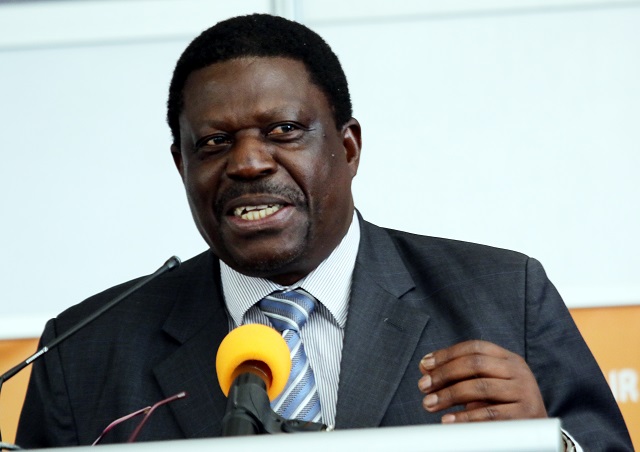Mat’land gets $2,3m for beef projects

Oliver Kazunga/Leonard Ncube in Victoria Falls, Senior Reporters
THE Government has partnered the African Development Bank (AfDB) to avail a $2,3 million facility for the beef and leather value chain in Matabeleland.
Industry and Commerce Minister Dr Mike Bimha revealed this yesterday while addressing delegates attending the 7th Buy Local Summit and Investment Forum, which ends here today.
“My ministry has partnered AfDB to avail $2,3 million providing support to the beef and leather sector in Matabeleland. And this programme has started as a pilot project in Matabeleland.
“The idea is that if it succeeds, we will now replicate the same programme in other provinces as well. So, it is looking at issues of beef and the leather sector and making sure that we identify areas where we need to improve,” he said.
Dr Bimha said the overall aim of the project was to strengthen the competiveness of the beef and leather value chain.
“The money has been signed for already and some programmes have already started with consultants now on the ground. The whole issue is about the beef value chain in terms of market and technology with the aim of strengthening competitiveness of beef,” he said.
Towards the end of 2016, the AfDB promised to avail funding for the support of Zimbabwe’s beef and leather value chain under a technical assistance project.
The overall objective of the technical assistance project is to catalyse the country’s economic growth and contribute in addressing Zimbabwe’s fragility through reviving the beef and leather industry.
The project is aimed at enhancing dialogue at national level among stakeholders (public and private) in the beef and leather value chain, for co-ordinated action.
Another component of the project is the business environment streamlining and reform aimed at facilitating support for the Government in its initiative to review and streamline reforms to the existing beef and leather sub-sector policies and regulations taking into account stakeholders’ concerns in the value chain.
Procurement under the project will include services of a consulting firm to support project implementation, audit services to be provided by an audit firm, monitoring and evaluation services to be provided by an individual consultant.
The project will also offer technical support for the design of a livestock information and traceability system as well as preparation of a proposal for dip tanks construction and rehabilitation, among others.
At present, Zimbabwe’s leather industry is operating at a subdued capacity despite opportunities in markets such as Sadc and the Common Market for Eastern and Southern Africa as well as abroad.
Dr Bimha said as a measure to support both new and existing investment, the Government has also made a decision to have capital equipment imported under rebate duty.
In this light, he said, the Government was aware of a number of challenges affecting business operations and the establishment of a National Competitiveness Commission with over 90 percent of the commission’s board members coming from the private sector.
“Furthermore, investors can defer payment of Value Added Tax due on importation of capital equipment for a period of three months,” he said.
Dr Bimha reiterated that Statutory Instrument 64 of 2016 was there to stay.
“SI 64/2016 is a dimension of promoting local content. We need to buttress the gains that we have so far achieved through the implementation of the statutory instrument,” he said.
SI 64 was promulgated in June last year resulting in the removal of listed products from the Open General Import Licence in order to protect local companies.
The Government has clarified that such products listed under the statutory instrument can only be imported when domestic firms are not able to meet local demand.









Comments